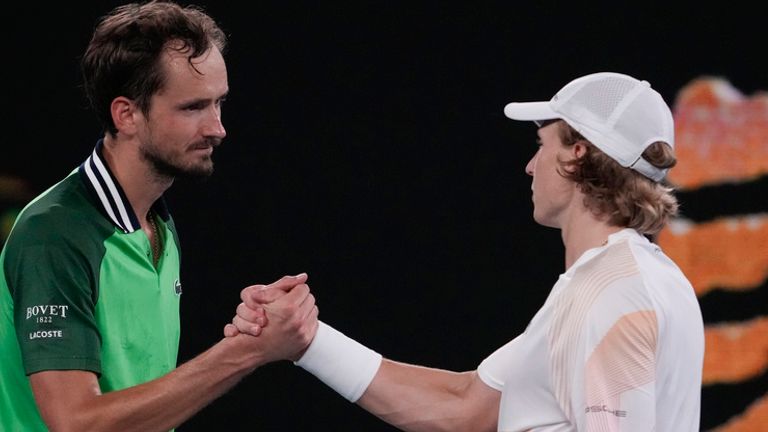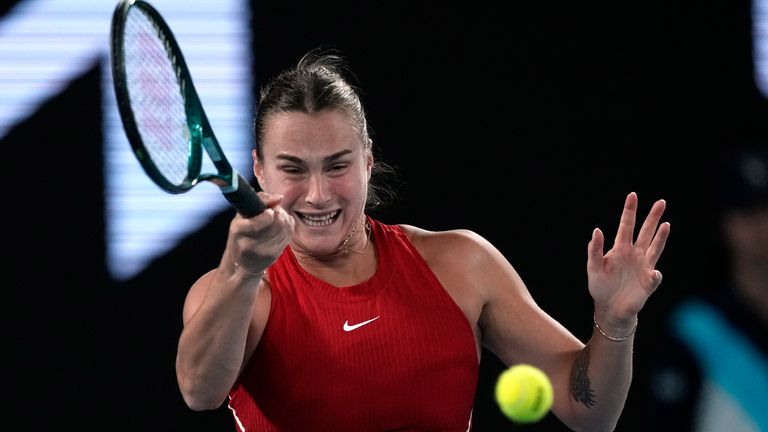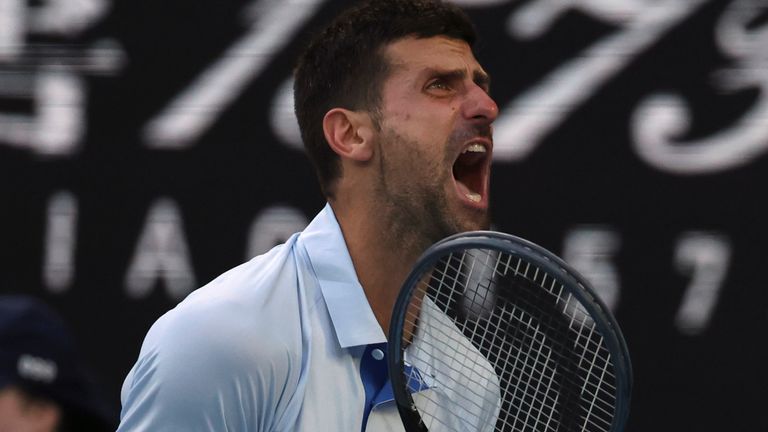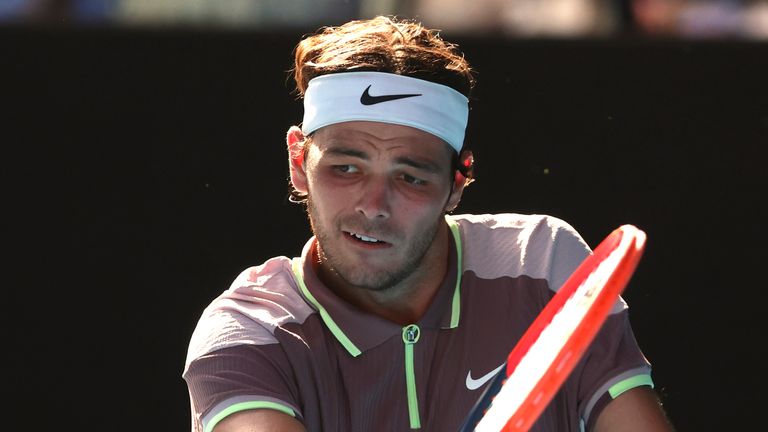[ad_1]
Australian Open organisers faced criticism over tournament scheduling after a long quarter-final between Novak Djokovic and Taylor Fritz delayed the night session on Tuesday by more than two hours.
Djokovic battled past his American opponent 7-6 (7-3) 4-6 6-2 6-3 after three hours and 45 minutes, with the match starting later than expected because of Coco Gauff’s own lengthy clash with Marta Kostyuk going the distance on Rod Laver Arena.
Extending the tournament to 15 days this year and scheduling only two matches in each day session was meant to avoid the sort of early-morning finishes that have become increasingly common.
But there have only been two days out of 10 so far where play has finished by midnight, with Daniil Medvedev and Emil Ruusuvuori playing until 3.39am in their second-round clash.
Tuesday’s delay meant women’s defending champion Aryna Sabalenka did not start her match, which had been due to begin at 7pm, until 9.10pm, and Jannik Sinner and Andrey Rublev were not hitting their first balls until after 10.40pm.
Sinner ultimately came through in straight sets 6-4 7-6 (7-5) 6-3, wrapping up victory at 1.22am in the early hours of Wednesday morning
Discussions took place about potentially moving one of the night session matches to a different court, with Barbara Schett saying on Eurosport: “They asked the women [Sabalenka and Krejcikova] if they wanted to move the match to Margaret Court Arena, but they said ‘no’.”
Wimbledon is unique in having an 11pm curfew, but play at the other grand slams has no cut-off point, and, with the average length of matches increasing markedly in recent years, what was rare is now commonplace.
Djokovic said: “We’ve seen in the past some late finishes. And I know for the crowds and for the tournament in a way it’s kind of exciting to see a 4am finish, a 3am finish. I was part of some of those. But it’s definitely not fun for us.
“The good thing about the quarter-finalists on this section [of the men’s draw] is we have two days. So I think that’s plenty of time to get a good sleep and recover.”
Fritz said after his defeat: “It just screws up your whole clock. I pray for those guys.
“I get it, matches go long some days. Like, today in particular, my match was long, the match before us was really long. But there’s got to be something they can do where people aren’t playing until 2, 3am, because I don’t think people really fully understand how much time we actually have to spend doing stuff after we finish playing.
“If you finish at 2am, there is no chance I’m going to sleep until 5, 6am.”
Sinner, the only player in the men’s draw yet to drop a set, believes he will be able to recover fully ahead of Friday’s tussle with Djokovic, who he has beaten in two of their last three matches.
“Obviously it’s late now, by the time I get to sleep,” he said. “But tomorrow I’m going to hit half an hour, 45 minutes, really late in the day, just to touch the ball a little bit.
“Then after, trying to sleep as much as possible, trying to recover. And that’s it. I feel quite confident that my body is going to recover in the best possible way.”
Henman: Something has to be done on late finishes
Former British No 1 Tim Henman on Eurosport:
“Let’s be honest, with those straight-sets matches [Sabalenka and Sinner], the tournament was kind of lucky to finish at 1.20am. We could have finished at 2.20, 3.20am – even more – if those matches went long.
“With the night session, the tournament doesn’t want to be selling a ticket with one match. They want two matches – so that is your predicament.
“Do you start the night session earlier? Though that has some complications with the host broadcasters. Do we need to think about speeding the courts up, speeding the balls up, so the rallies aren’t quite so long? It’s now about an hour a set.
“This tournament, they tried to talk about how starting on Sunday was going to help the night sessions… that was absolute rubbish. It just meant the first round was played over three days.
“Something has to be done. We can’t just carry on like this because it’s no good for anyone – the players, the spectators, the ball kids, the line judges.
“It is sport, but I can’t think of any other sport where you’re the best in the world, playing in the best tournaments in the world, and you’re playing at 3am in the morning.”
Watch the WTA and ATP Tours throughout 2024 on Sky Sports. Stream tennis and more with a NOW Sports Month Membership
[ad_2]
Source link



